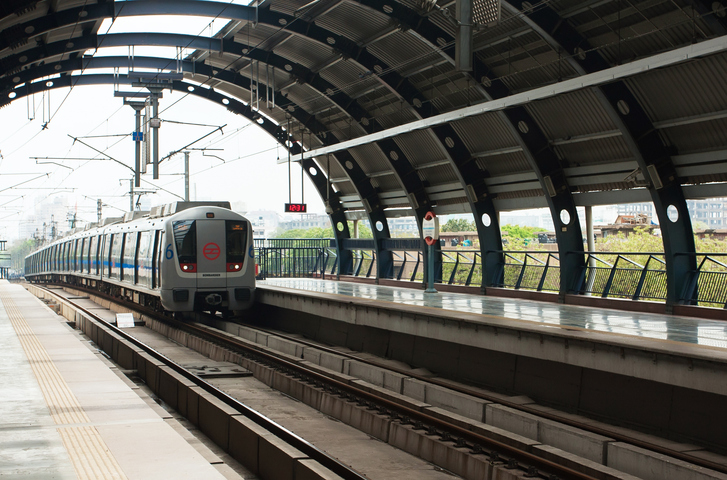The Delhi Metro Rail Corporation (DMRC) has officially revised ticket fares for the metro service in the national capital after eight years.
After this hike, commuters will now have to pay an increased amount starting Monday, August 25.
The DMRC stated that the fare adjustment is nominal, with increases ranging between ₹1 and ₹4 across most lines. However, fares on the Airport Express Line will see a rise of up to ₹5.
In an official post on X (formerly Twitter), DMRC confirmed: “The passenger fares of the Delhi Metro services have been revised with effect from today, that is, 25th August 2025 (Monday) onwards. The increase is minimal, ranging from ₹1 to ₹4 only depending on the distance of travel (up to ₹5 for the Airport Express Line).”
The new fare structure reflects changes across all distance slabs. Passengers travelling short distances between 0 and 2 kilometres will now pay ₹11, while those covering the longest distances, beyond 32 kilometres, will pay ₹64, up from the previous maximum fare of ₹60. Before this hike, the minimum fare was ₹10.
The revised fare slabs are now in effect across the metro network, which spans over 390 kilometres and serves more than 285 stations across Delhi and the National Capital Region.
To provide some relief to commuters, especially casual travellers and families, the DMRC has introduced discounted fare slabs for Sundays and national holidays. On these days, the fare for short and mid-range travel will be significantly lower, with the cost of travelling distances up to 5 kilometres capped at ₹11, and the maximum fare set at ₹54 for journeys beyond 32 kilometres.
The hike drew flak from several commuters and social media users, many of whom questioned the timing and necessity of the move.
Several users voiced concerns about the rising cost of living and demanded transparency on how the increased revenue would be utilised.
Despite the backlash, DMRC officials maintain that the fare revision is necessary to ensure operational sustainability, maintain high service standards, and support future infrastructure upgrades.
(IANS)














